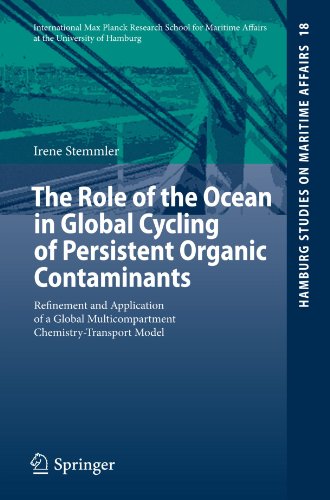

Most ebook files are in PDF format, so you can easily read them using various software such as Foxit Reader or directly on the Google Chrome browser.
Some ebook files are released by publishers in other formats such as .awz, .mobi, .epub, .fb2, etc. You may need to install specific software to read these formats on mobile/PC, such as Calibre.
Please read the tutorial at this link: https://ebookbell.com/faq
We offer FREE conversion to the popular formats you request; however, this may take some time. Therefore, right after payment, please email us, and we will try to provide the service as quickly as possible.
For some exceptional file formats or broken links (if any), please refrain from opening any disputes. Instead, email us first, and we will try to assist within a maximum of 6 hours.
EbookBell Team

4.4
62 reviewsPersistent organic contaminants, which are bioaccumulative and toxic are a concern for the ecosystems and human health and are regulated under international law (global and regional conventions, besides other). If semivolatile, they cycle in different environmental compartments and follow complex transport pathways. The ocean is believed to play a key role in the cycling by accumulating and storing the contaminant and providing a transport medium. But substance fate in the marine environment is not fully understood yet. Here, the global multicompartment chemistry-transport model MPI-MCTM is used to study the fate of organic pollutants in the marine and total environment. For the first time historical emission data are used in spatially-resolved long-term simulations of an insecticide, DDT, and an industrial chemical, perfluorooctanoic acid (PFOA). The model results give new insights into the cycling of these substances as different spatial and process resolutions were tested. E.g. for DDT the model results show saturation and reversal of air-sea exchange, which was not indicated by any other study before.